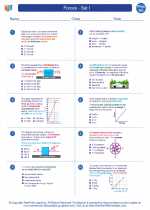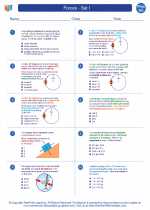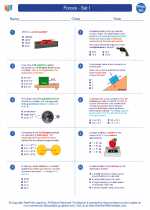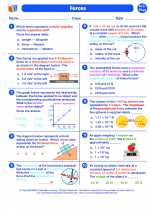Glands in High School Physics
Glands are important organs in the human body that are responsible for secreting hormones and other substances. In the context of high school physics, the endocrine system and the glands within it play a crucial role in understanding the principles of energy, work, and power in the human body.
Endocrine System
The endocrine system is a network of glands that secrete hormones directly into the bloodstream to regulate various bodily functions, such as metabolism, growth, and reproduction.
Main Glands in the Endocrine System
- Pituitary Gland: Often referred to as the "master gland," the pituitary gland is located at the base of the brain and controls the function of other endocrine glands.
- Thyroid Gland: Located in the neck, the thyroid gland produces hormones that regulate metabolism.
- Adrenal Glands: Situated on top of the kidneys, the adrenal glands produce hormones such as adrenaline, which help the body respond to stress.
- Pancreas: While primarily an organ of the digestive system, the pancreas also functions as an endocrine gland, producing insulin and glucagon to regulate blood sugar levels.
- Reproductive Glands: In both males and females, the reproductive glands (testes in males and ovaries in females) produce hormones that control sexual development and reproduction.
Study Guide
When studying the topic of glands in high school physics, consider the following key points:
- Understand the role of the endocrine system in maintaining homeostasis and regulating various bodily functions.
- Identify the main glands in the endocrine system and the hormones they secrete, along with their specific functions.
- Explore how hormones produced by the glands in the endocrine system impact energy levels, growth, and the body's response to stress.
- Consider the interplay between the endocrine system and other systems in the body, such as the nervous system and the immune system, in maintaining overall health and well-being.
- Discuss the implications of glandular disorders, such as diabetes (related to the pancreas) and thyroid disorders, on the body's energy regulation and overall health.
By understanding the role of glands and the endocrine system, high school physics students can gain insight into the intricate mechanisms that govern energy transfer, work, and power within the human body.
[Glands] Related Worksheets and Study Guides:
.◂Physics Worksheets and Study Guides High School. Forces - Set I

 Worksheet/Answer key
Worksheet/Answer key
 Worksheet/Answer key
Worksheet/Answer key
 Worksheet/Answer key
Worksheet/Answer key
